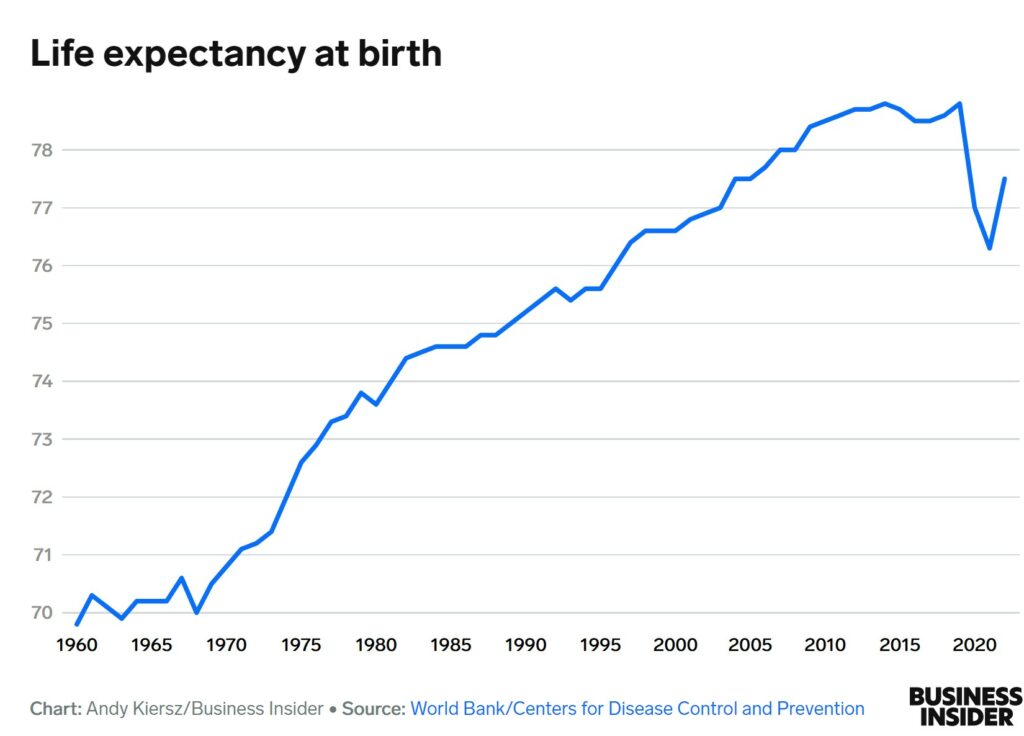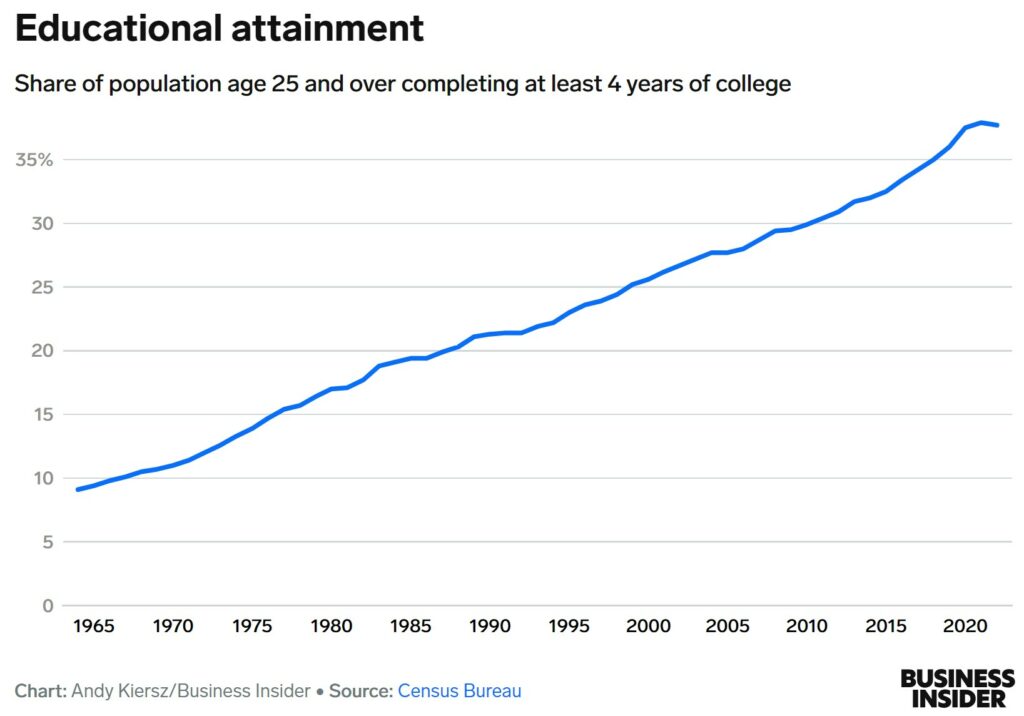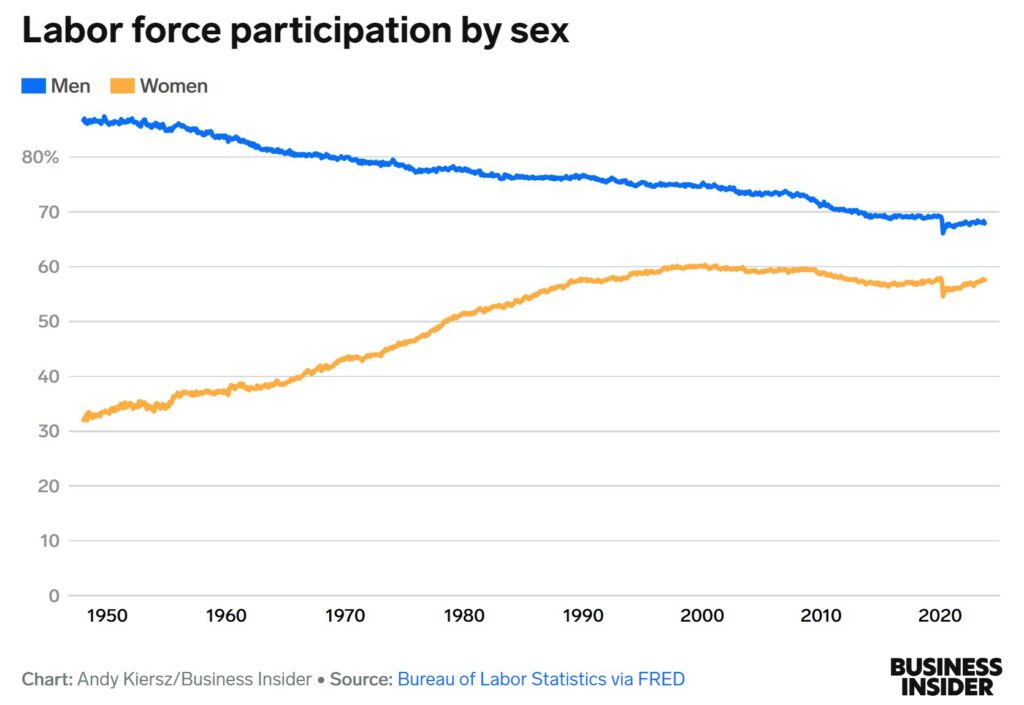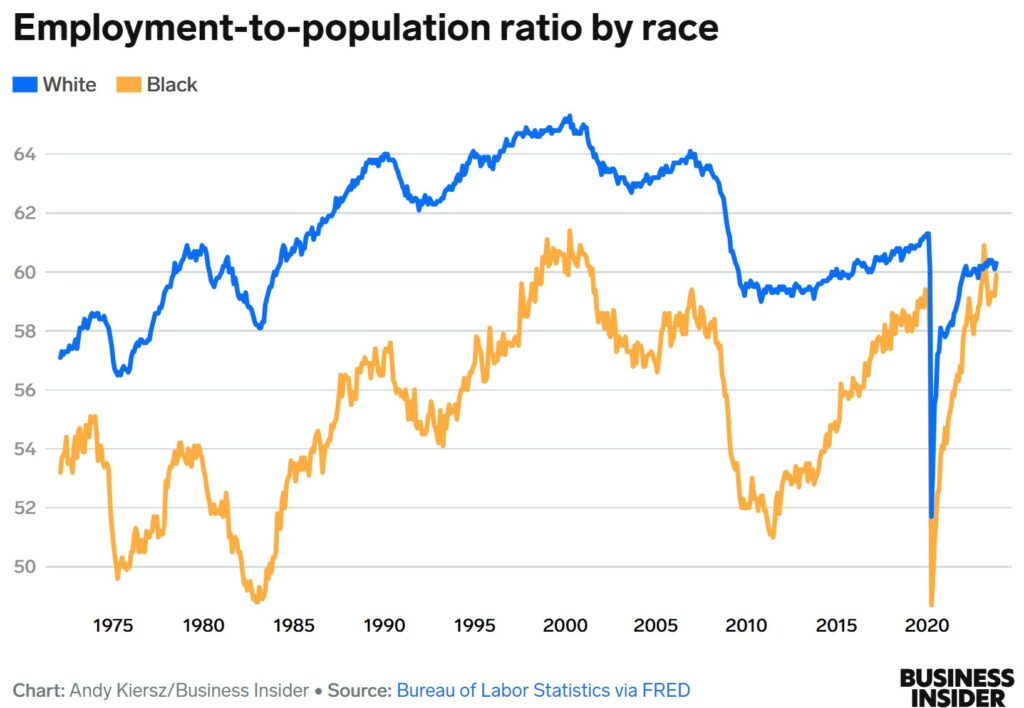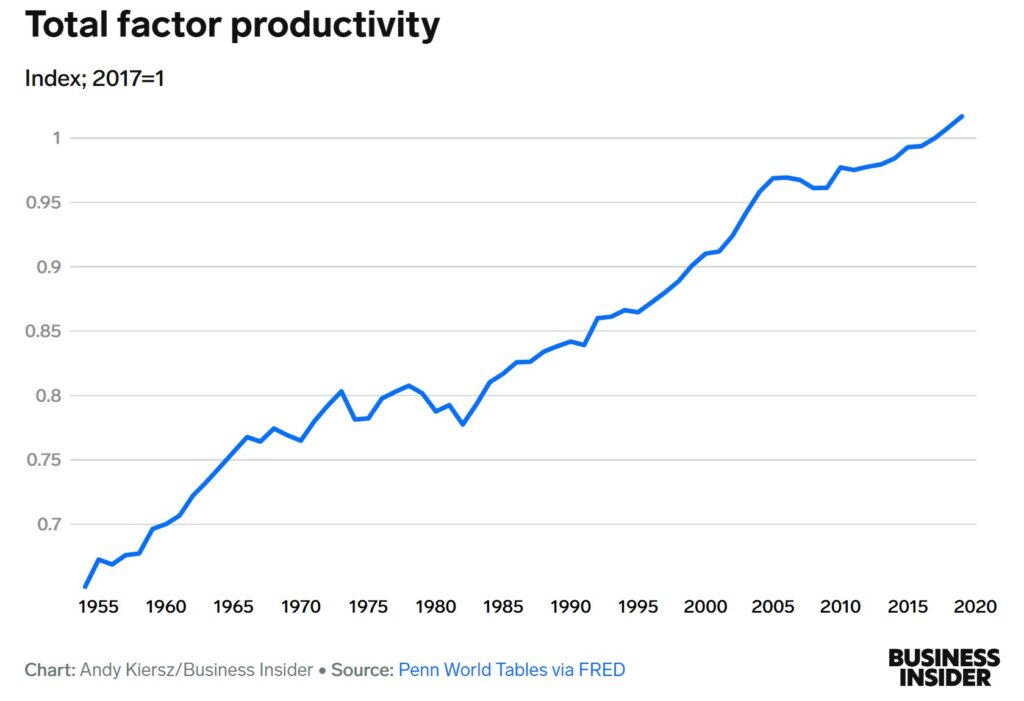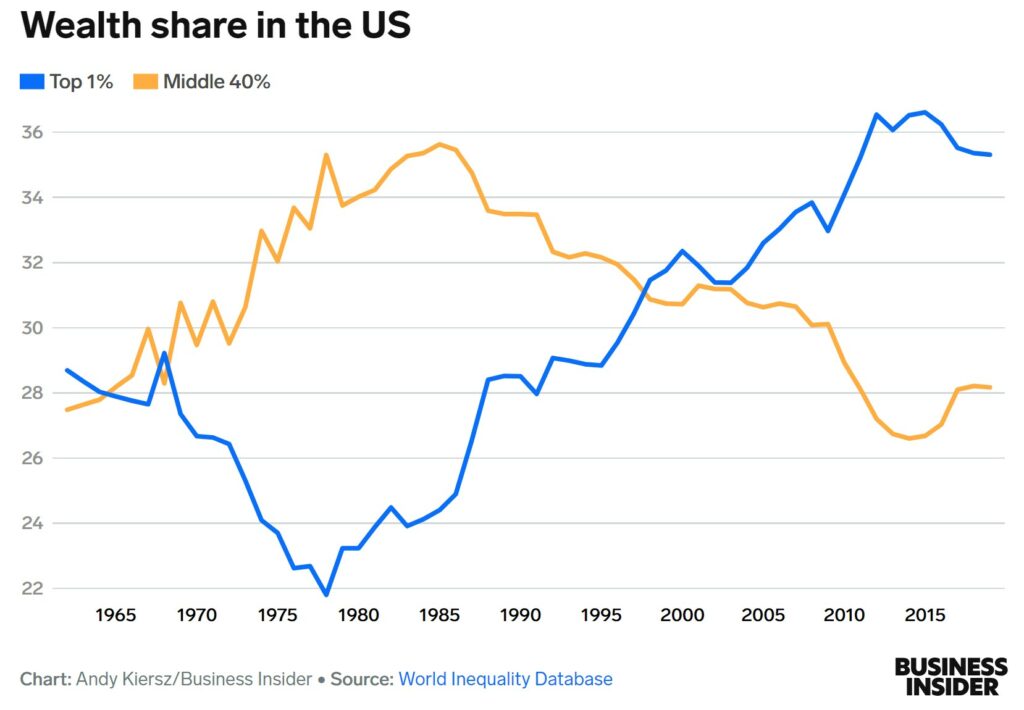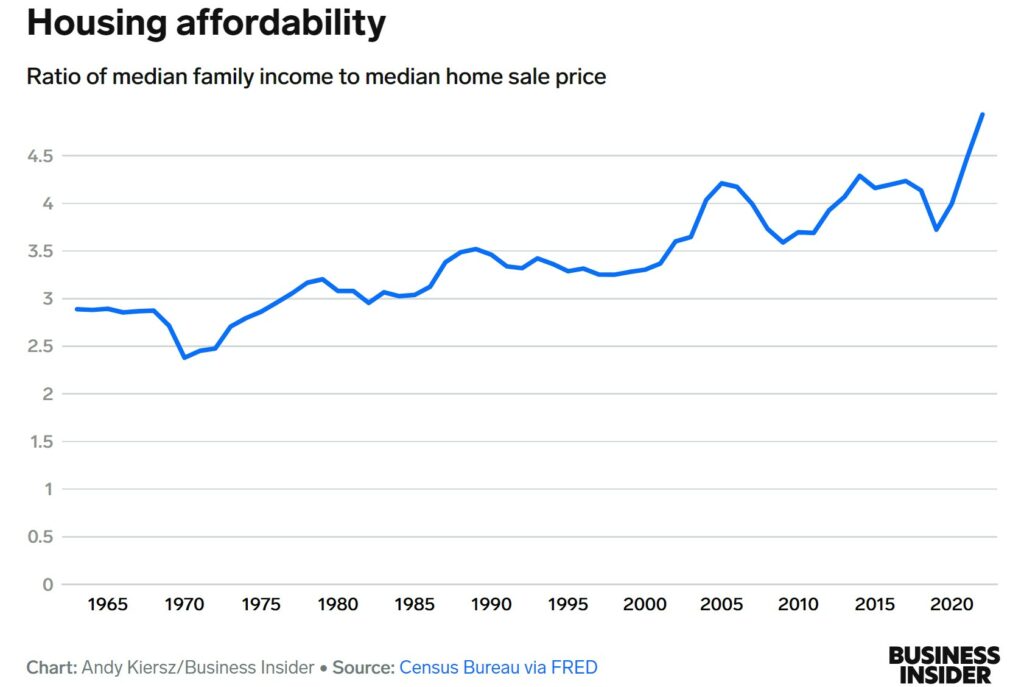Part Two of Being grateful for one big thing Baby Boomers did. Part I can be found here as written by Andy Kiersz. Gen Z, Millennials Should Stop Complaining About Baby Boomers, Economy, business insider, Andy Kiersz Excellent Charting done by the author Andy Kiersz. Detail taken from the Census Bureau, BLS, Penn World Tables, Federal Reserve Survey of Consumer Finances, Centers for Disease Control and Prevention, and World Inequality Database. Americans are living much longer than when the boomers were growing up. Despite a historic drop in life expectancy at birth in 2020 and 2021 as a result of the COVID-19 pandemic, the typical child born in 2022 is expected to live seven years longer than a child born in 1960. Americans are also
Topics:
Angry Bear considers the following as important: Baby Boomers, Business Insider, Hot Topics, Part II, US EConomics
This could be interesting, too:
NewDealdemocrat writes JOLTS revisions from Yesterday’s Report
Joel Eissenberg writes No Invading Allies Act
Bill Haskell writes The North American Automobile Industry Waits for Trump and the Gov. to Act
Bill Haskell writes Families Struggle Paying for Child Care While Working
Part Two of Being grateful for one big thing Baby Boomers did. Part I can be found here as written by Andy Kiersz.
Gen Z, Millennials Should Stop Complaining About Baby Boomers, Economy, business insider, Andy Kiersz
Excellent Charting done by the author Andy Kiersz. Detail taken from the Census Bureau, BLS, Penn World Tables, Federal Reserve Survey of Consumer Finances, Centers for Disease Control and Prevention, and World Inequality Database.
Americans are living much longer than when the boomers were growing up. Despite a historic drop in life expectancy at birth in 2020 and 2021 as a result of the COVID-19 pandemic, the typical child born in 2022 is expected to live seven years longer than a child born in 1960.
Americans are also better educated than ever. The share of the adult population with at least four years of college has more than tripled since the ’60s.
Opportunities have also expanded dramatically in the US since the boomers started their careers. A half century of civil-rights movements has created a still imperfect but far more egalitarian society. One of the factors in increasing household income has been the rise of two-income households as women have been able to take on work.
Even racial inequalities at work have declined over the past half century. Historically, the share of Black Americans with a job has been lower than that of white Americans, but that gap has narrowed since the Great Recession and was nearly closed as of 2023.
There have also been broad qualitative improvements across a plethora of goods and services available to the average American. Cars are safer and more fuel-efficient than they were a half century ago, entertainment options have exploded, and the rise of the internet means we now all have access to the sum total of human knowledge in our pockets at all times.
Credit where credit is due
The simple fact is that America is a much more broadly wealthy society than it was in the middle of the 20th century. There are plenty of reasons we’re better off nowadays, as a wide variety of technological, social, financial, and broad economic changes have happened under the boomers’ watch.
One of the biggest reasons for America’s growing prosperity is ongoing technological improvements — much of which was developed by the boomers. Developments in industrial automation and computers have greatly accelerated productivity, a measure of the amount of economic activity per worker. An accountant working in Excel can balance a company’s books in seconds, while working it out on paper would take hours. These improvements let us produce more, meaning a much larger economic pie is available to be shared.
Another important boomer contribution to our prosperity is our largely stable and increasingly open world. While globalized trade has hurt certain sectors in the US, it’s contributed to lower prices and more widely available goods. America has become a more egalitarian and open society after the civil-rights and feminist movements of the second half of the 20th century, which opened the doors to greater economic and social participation for traditionally excluded groups and created a vast pool of talent to add to that prosperity.
Everything isn’t perfect, but it’s better
This doesn’t mean every Gen Zer and millennial needs to go up to the boomers in their life and bow down to their benevolence. The “Me” generation also left their progeny with plenty of problems. One of the most glaring issues is the growth of economic inequality: Despite gains in wages, much of the great wealth created by the boomers has flowed to the top. One way to define inequality is to look at how the share of the country’s wealth held by those at the top compares with the middle class. Since roughly 1998, the top 1% has held more of the nation’s wealth than the middle 40%.
Admittedly, there are some encouraging signs the inequality trend could be reversing. Over the past three years, wage growth has been disproportionately concentrated among low-income workers, which could lead to a compression in income inequality.
Another area where the boomers have left the country worse off is housing. Boomers have consistently passed laws to make building housing harder, leaving the country with a structural housing deficit. The consequence? Soaring housing costs. A typical house cost a little under three times the typical family’s income in the mid-’60s; after the recent post-pandemic run-up in housing prices, that figure was nearly five times family income in 2022.
Beyond the economy, the boomers have handed off other deep problems that the younger generations will have to solve. The climate crisis threatens to undermine our collective prosperity, COVID-19 has shown that a highly globalized world is susceptible to dangerous pandemics, and rising political polarization is challenging one of the core prerequisites of a wealthy, stable, and democratic society.
The world is a much different place from it was when the boomers were young. There are problems, yes, but for Americans, the country is largely a much-better place. The siren song of nostalgia reaches out to most generations in most times and places across history. Millennials and Zoomers would be wise to ignore it.

